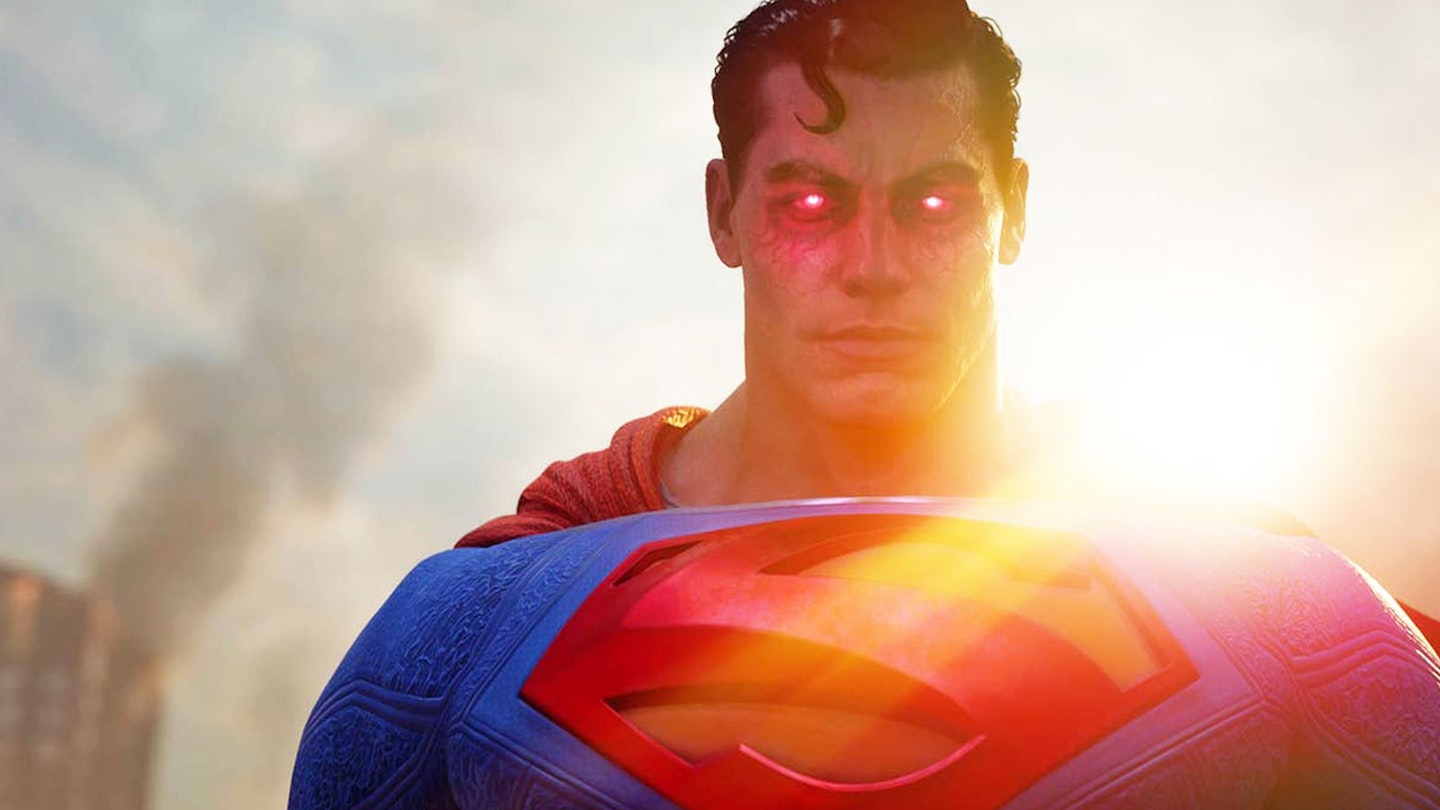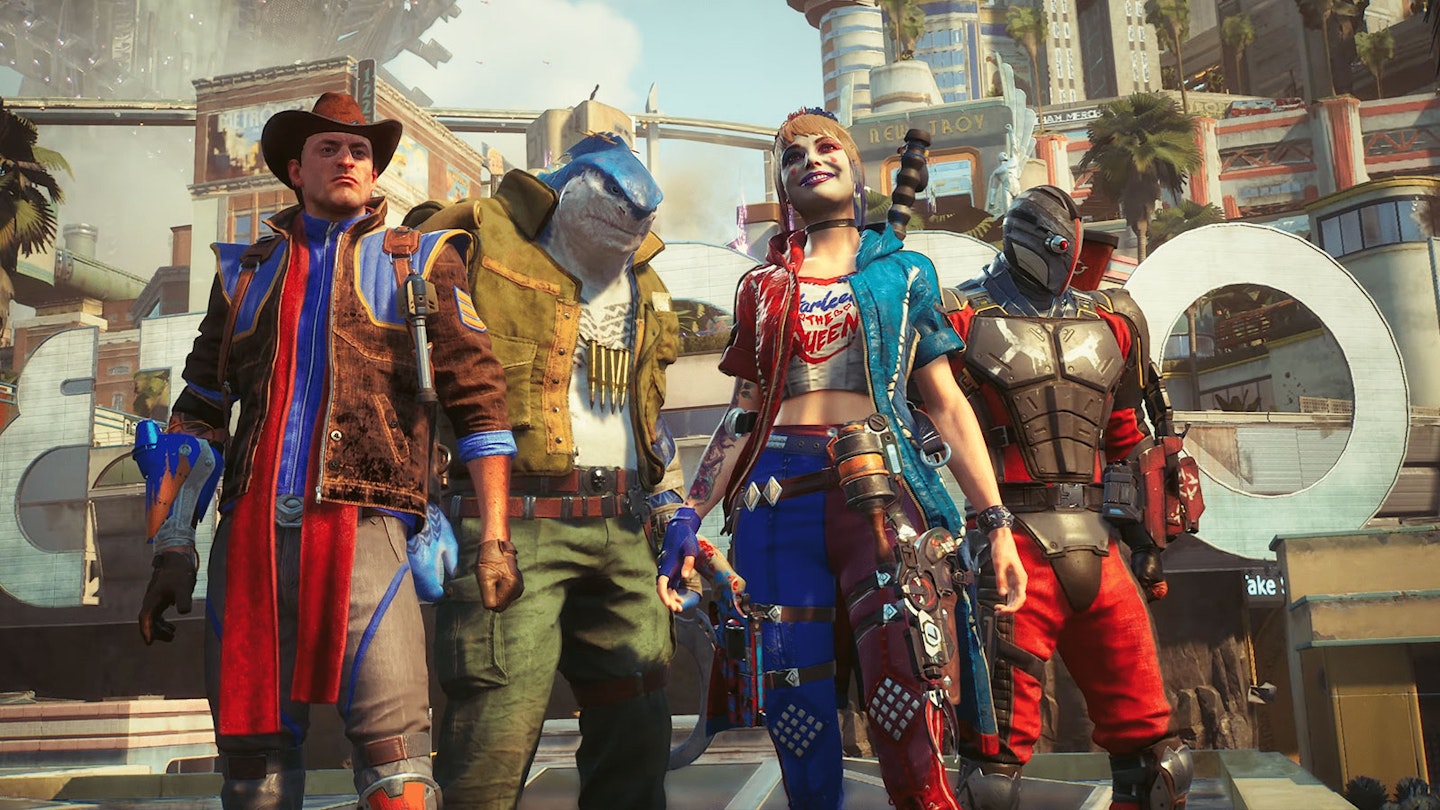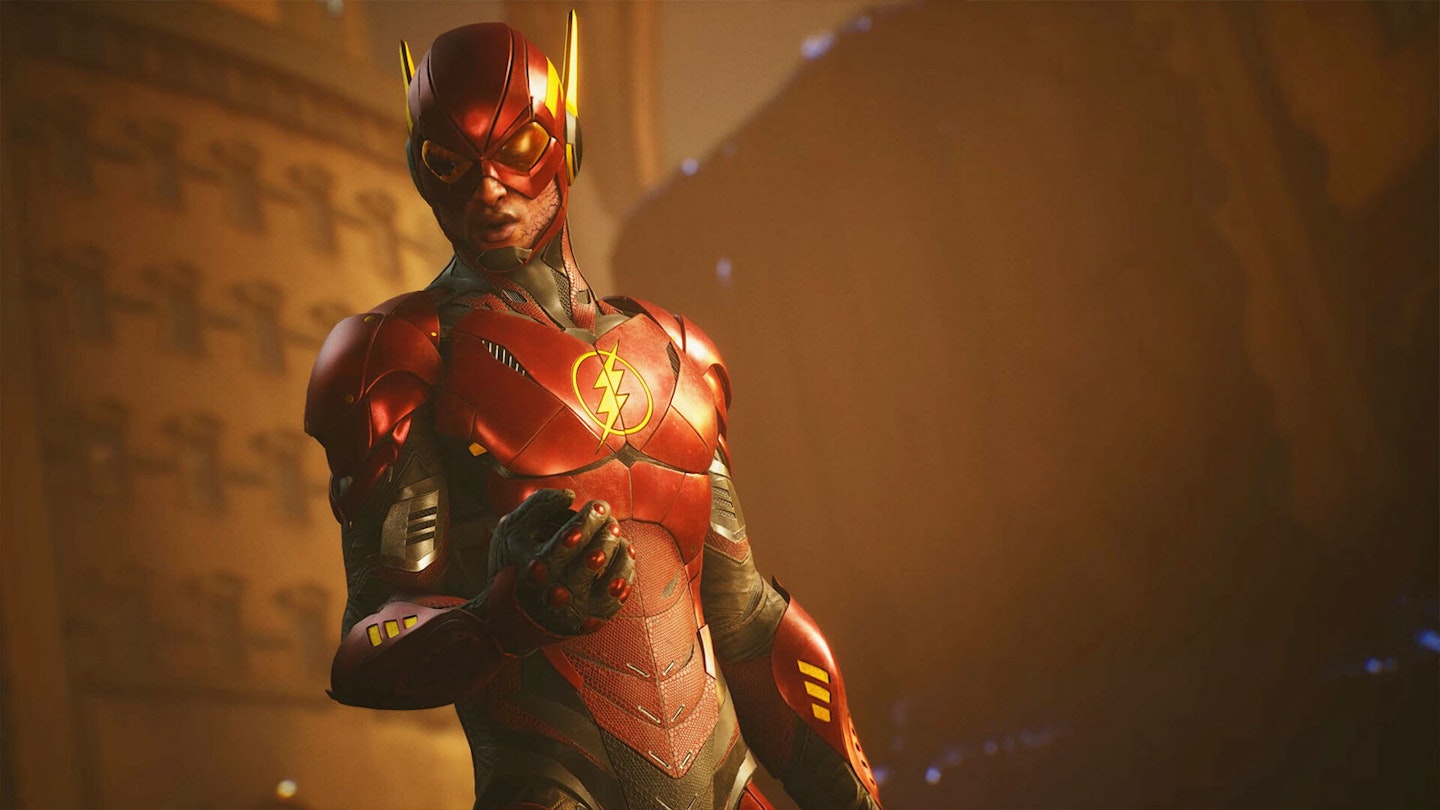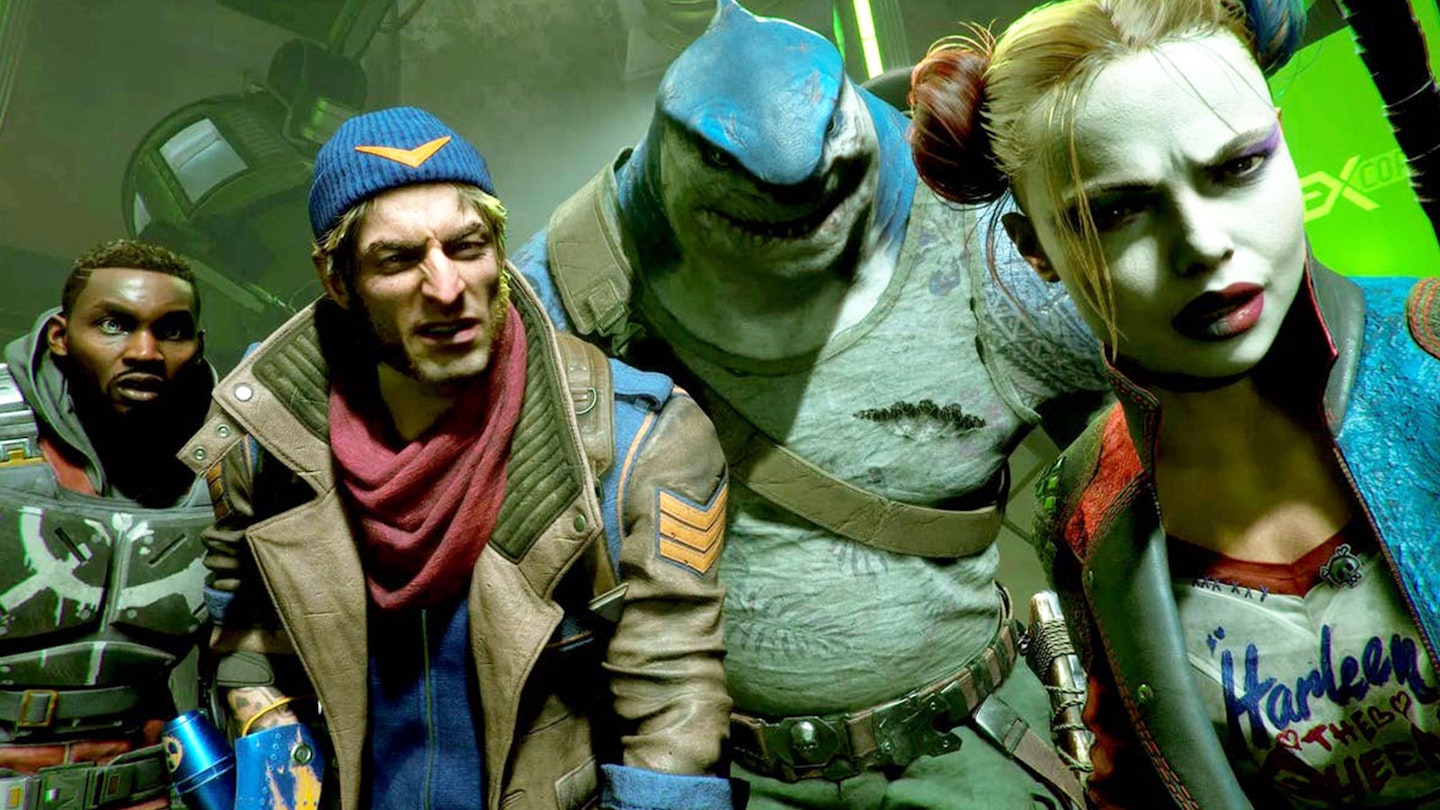Platforms: PS5, Xbox Series X|S, PC
Interplanetary conqueror Brainiac has taken over Superman's home turf of Metropolis and brainwashed the heroic Justice League. Now, the fate of humanity rests in the hands of, er, a clown, a fish, a gun fetishist, and a loudmouth Aussie with trick boomerangs. We're probably doomed…
The idea of the Suicide Squad, DC's cadre of scrappy supervillains, stepping up when the real heroes are taken off the board could make for a great game. Unfortunately, Kill The Justice League is not it. Coming from the prestigious Rocksteady Studios, developer of the much-loved Batman: Arkham games, and building on the continuity of that series, it arguably should be, but in shifting from story-driven single-player adventures to a loot-chasing, multiplayer-focused model, it instead drowns in mediocrity.

In gameplay terms, Suicide Squad struggles on two main fronts, shooting and traversal. Unfortunately, it also wants to be a game built on shooting and traversal. Each of the four reluctant protagonists – Harley Quinn, King Shark, Deadshot, and Captain Boomerang – has their own distinct way of navigating the open-world environment, using tech stolen from the Justice League's trophy room. Early on, the game takes you through each character's control scheme, before asking you to choose which one you want to play as first – and it's not a good sign when the reaction is "well, none of them, really".
What's especially frustrating with Suicide Squad is that glimmers of potential are still apparent.
For instance, Harley's stolen Bat-grapple, allowing her to hoist herself up to ledges or swing from a Bat-drone overhead, lacks any sense of momentum. Rather than Clown Princess of Crime, she ends up feeling like a low-rent Spider-Woman who's not quite got the fine art of web-swinging down. Meanwhile, Deadshot's jetpack struggles with range, and Boomerang's short-burst teleportation – courtesy of a gauntlet hacking into Flash's Speed Force – lacks precision. Nothing clicks, and what's worse is that even basic, universal techniques feel off – the humble jump feels weirdly floaty, while an inexplicable double-jump available to all characters feels out of place.
Gunplay, meanwhile, feels overly similar between the four, despite a vast arsenal. Whether pistol, rifle, or heavy weapon, there's little tangible difference. Sniper rifles, thanks to the zoom function, and shotguns, due to hefty recoil, at least feel slightly distinct, but broadly it's all a bit spray-and-pray. This isn't helped by a ludicrous "shield harvesting" mechanic, where the Squad's handler, Amanda Waller, decides the best way to keep the team on their toes is by having them… shoot enemies in the legs until you can deliver an attack to steal their shield energy.

There's a sense that Rocksteady wants players to be catapulting their way through the city, making use of the verticality of Metropolis' skyscrapers to pounce on Brainiac's ever-roaming forces, then bullet-juggling them into oblivion. But when neither traversal nor shooting ever really click, everything descends into generic shootouts that could be taking place in Destiny as easily as the DC Universe.
Yet while Bungie made the live service model integral to Destiny, Rocksteady's pursuit of it here instead feels like the cardinal sin of Suicide Squad; a direction that, at almost every turn, undermines what strengths the game might otherwise possess. It means missions structured for quick, repetitive play, struggling to tell chunks of story while also allowing for drop-in, drop-out sessions where players could control other Squad members (solo play is possible, with the rest of your team AI-controlled, but at launch an online connection is still required) and grind for loot.

Perhaps worst of all, that loot isn't even fun to chase. Countless variations of weapons and gear, all with head-spinning stats, are meant to incentivise repeated play for the chance of better drops, but no matter what you equip, the game never escapes that sense of repetition. After several hours of granular missions and samey encounters, it's hard not to wonder what the game could offer players if it weren't having to fit into what feels like a corporate, rather than creatively, mandated live service model.
Would Hulk-like King Shark even be lugging a minigun around if the game didn't need him to fit into a multiplayer shooter mould? Would there be an entire mission to unlock a grenade slot for a game featuring Deadshot, who's a walking armoury to begin with? Would you even have this roster, rather than team members with more varied abilities from the comics, if the edges didn't need to be filed off to create largely interchangeable avatars who all need to run-and-gun? Probably not.
What's especially frustrating with Suicide Squad is that glimmers of potential are still apparent. Rocksteady's visual polish is undeniable, and the voice cast – including Tara Strong as Harley Quinn and Jason Isaacs as Brainiac – all impress with strong performances. The writing as a whole is better than the game deserves, balancing dark humour with high stakes and plenty of pathos – although the central concept of killing DC's iconic heroes, and the brutal manners in which many are dispatched, won't sit well with some fans. A compilation of the game's cutscenes might even make for a compelling DC Elseworlds movie – but having to shear off the actual game to find what's good here is damning.
A strong concept centred on dirtbag anti-heroes should make Suicide Squad a delight, but banal mechanics and repetitive loot-grinding rob it of anything approaching greatness, and make this a grave injustice.
